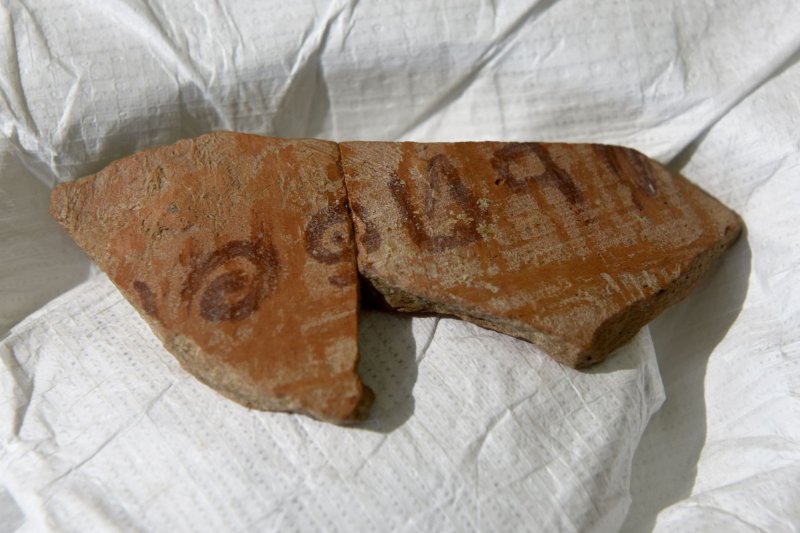Name of biblical judge found inscribed on 3,100-year-old jug found in Israel

Archaeologists have uncovered a small jug with a rare five-letter inscription, linking the 3,100-year-old ceramic artifact to a biblical judge mentioned in the Book of Judges.
The jug and ancient inscription — the first to feature the name ‘Jerubbaal’ — were found at a dig site in the Shahariya Forest, among Israel’s Judean Foothills, archeologists reported the discovery Monday in the Jerusalem Journal of Archaeology.
“The name of the Judge Gideon ben Yoash was Jerubbaal, but we cannot tell whether he owned the vessel on which the inscription is written in ink,” archaeologists said in a press release.
The inscribed jug, bearing the name Jerubbaal, was recovered from a subsurface storage pit lined with stones. Researchers suspect the small jug likely held a precious liquid, such as oil, perfume or medicine.
Though the jug features only five inscribed letters, close analysis suggests the original inscription was longer.
In the Book of Judges, Jerubbaal is first mentioned as a leading opponent of idolatry.
He’s also credited with leading a successful battle against the Midianites.
“According to the Bible, Gideon organized a small army of 300 soldiers and attacked the Midianites by night near Ma’ayan Harod,” said Yossef Garfinkel and Sa’ar Ganor, lead archaeologists on the project and professors at the Hebrew University of Jerusalem.
“In view of the geographical distance between the Shephelah and the Jezreel Valley, this inscription may refer to another Jerubbaal and not the Gideon of biblical tradition, although the possibility cannot be ruled out that the jug belonged to the judge Gideon,” Garfinkel and Ganor said.
“In any event, the name Jerubbaal was evidently in common usage at the time of the biblical Judges,” they said.
Because the jug and its inscription date to roughly 1,100 B.C., the time of biblical judges, archaeologists suggest the discovery offers proof of the historical accuracy of the Bible.
“As we know, there is considerable debate as to whether biblical tradition reflects reality and whether it is faithful to historical memories from the days of the Judges and the days of David,” according to Garfinkel and Ganor.
“The name Jerubbaal only appears in the Bible in the period of the Judges, yet now it has also been discovered in an archaeological context, in a stratum dating from this period,” Garfinkel and Ganor said.
“In a similar manner, the name Ishbaal, which is only mentioned in the Bible during the monarchy of King David, has been found in strata dated to that period at the site of Khirbat Qeiyafa,” the archaeologists said.
Identical names being mentioned in the Bible, which have been found in other previously recovered inscriptions, they said, ” shows that memories were preserved and passed down through the generations.”

